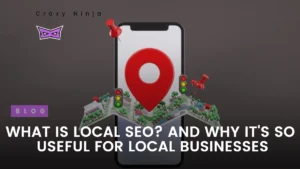Around this period annually, as iced lattes yield to the allure of pumpkin spice and eggnog, Twitter becomes inundated with the same old cliché:
“IS SEO DEAD?”
Today, we’re deviating from the usual routine of fretting over search engine optimization to boldly declare, borrowing the immortal words of Mark Twain, that the demise of SEO is significantly overstated.
Back in 2016, companies allocated a hefty $65.26 billion to their SEO strategies. This figure saw significant growth, surging to $72 billion by 2018. Fast forward to 2020, and the estimations paint an even more staggering picture – companies are projected to invest a whopping $79.27 billion in search engine optimization.
Is SEO (Search Engine Optimization) still alive and kicking, or has it met its demise in the ever-changing landscape of the internet?
Contrary to the naysayers, SEO is not deceased; it’s transformed, evolved, and emerged stronger.
Think of it as a phoenix rising from the ashes. Yes, the SEO landscape has shifted, but it’s adapted to the changing times, and it’s soaring to new heights.
One thing that remains unchanged in the SEO realm is the core principle: providing users with the most relevant and valuable content.
Google, our digital compass, continues to prioritize user experience. If your website serves up content that’s engaging, informative, and caters to your audience’s needs, SEO is very much on your side.
Voice Search – The New Horizon
The rise of voice search might have sent ripples through the SEO community, but it’s not a death sentence. In fact, it’s an exciting frontier to explore.
As more people use voice-activated devices like Siri and Alexa, SEO is adapting to accommodate these new search habits. It’s about optimizing for conversational keywords and providing succinct, informative answers.
Mobile First – A Non Negotiable
In the quest for SEO survival, one thing is clear: mobile-first indexing is here to stay. With a significant portion of searches happening on mobile devices, Google has made mobile-friendliness a non-negotiable factor in ranking. If your website isn’t optimized for mobile, it’s like showing up to a digital duel with a wooden sword.
The Role of Content
High-quality content has always been the jewel in SEO’s crown, and it remains the undisputed ruler of the digital kingdom. However, it’s not just about keywords anymore.
Google’s algorithms are getting smarter, and they can recognize well-crafted, valuable content from a mile away. Focus on providing value, and SEO will bow at your feet.
Local SEO
For businesses with a local presence, local SEO is the neighborhood watch ensuring you’re visible to potential customers nearby.
With the increasing use of “near me” searches, optimizing your online presence for local SEO is a savvy move. It’s like placing a giant neon sign over your digital storefront.
AI and Machine Learning
SEO isn’t battling the future; it’s partnering with it. AI and machine learning are becoming SEO’s trusty sidekicks. They help analyze vast amounts of data, predict trends, and fine-tune strategies. SEO isn’t dead; it’s thriving in the age of artificial intelligence.
How Does Google Know Your Content is Relevant
When we stumble upon online content that’s pertinent to our interests, our natural inclination is to click on that specific entry within the search results. We usually start by scanning the headline, which often contains the keyword and serves as a hook, drawing us in to read the initial sentence of the content.
As we go deeper into the material, our engagement increases, leading to a prolonged dwell time – the duration a user remains on a webpage. Google views this as an indicator of top-notch content quality. It’s intriguing to note that, on average, the top result in a Google Search maintains a dwell time of an impressive three minutes and 11 seconds!
As Google closely monitors our interactions with the page, it’s likely that it observes whether we swiftly return to the search results and select another option. If you can orchestrate this behavior and your content proves valuable to users, you’re on the path to success.
It’s as simple as it can be. But we are not assuming it was easy… just simple!
Future of SEO
When we gaze into this remarkable future, it becomes evident that our lives will become even more convenient. We won’t require physical interaction with a screen or keyboard to instantly obtain the precise answers we seek.
Considering all the fresh rich-listing features endorsed by Google – including local pack entries, maps, knowledge panels, Google My Business, and various structured data – it becomes evident that Google’s aim is to enhance the utility of search results for users.
Yet another hurdle on our path to this promising future revolves around web speed. As we incorporate more features into a website, its performance tends to slow down. The web speed community finds itself grappling with the dilemma of balancing user interface enhancements with the need to minimize page size. The ultimate goal? Ensuring that browsers can render a page in one second or less.
So, is SEO dead in 2024? Far from it! SEO is very much alive and kicking, reinventing itself to keep pace with the dynamic digital landscape. It’s not about the death of SEO; it’s about the evolution of SEO. To navigate this exciting terrain, stay updated with SEO news, be agile in your strategies, and remember that SEO is your trusted ally in the ever-expanding digital universe








